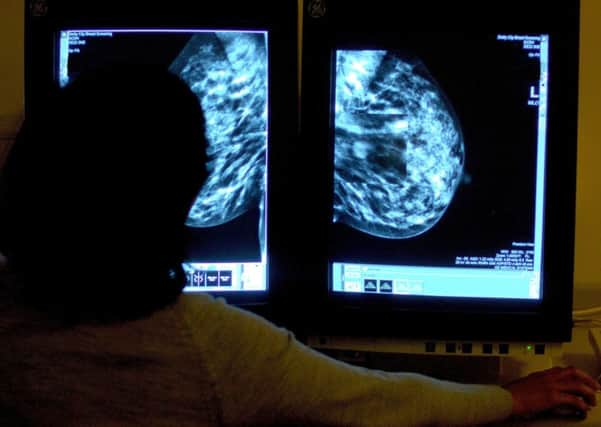Gatekeeper GPs hinder progress on cancer care says professor


An analysis says the practice of giving patients access to diagnostics and hospital care only on the referral of their family doctor may “deter” patients from seeking advice.
The report, from the Health Foundation and Professor Sir Mike Richards, the Government’s former cancer tsar, says GPs in the UK are “much less likely to investigate or refer patients than those in comparable countries and hospitals are feeling swamped by current levels of referrals”.
Advertisement
Hide AdAdvertisement
Hide AdThe authors suggest survival rates could improve by helping prospective patients spot signs sooner, and making it easier for them to access GP appointments.
They quote national guidance suggesting that GPs should investigate patients with symptoms that indicate a three per cent or higher risk of cancer.
But they write: “These guidelines have not yet been fully implemented and efforts are being made to increase GP awareness.”
The document, which examines changes in cancer care across England since 1995, also calls for pilots into rapid diagnostic centres to be accelerated.
Advertisement
Hide AdAdvertisement
Hide AdSuch centres are being tested by NHS England and allow GPs and other health care professionals to rapidly refer people with non-specific symptoms which would otherwise not fit existing “cancer pathways”.
The Prime Minister also spoke about investing in rapid diagnostic centres earlier this year when she pledged that the proportion of patients diagnosed at early stage from one in two to three in four people by 2028.
The report acknowledges that progress has been made in several areas of cancer care including “marked” improvements in technology in both diagnostics and new treatments, data on cancer has improved significantly and Government efforts to crack down on smoking.
But the authors said that despite these improvements England’s five year survival rates “have not caught up with comparable countries”.
Advertisement
Hide AdAdvertisement
Hide AdA person diagnosed with colon cancer in the UK has a 60 per cent chance of survival after five years, compared with 71 per cent for those living in Australia.
Although there has been recent investment in equipment to treat cancer, the UK has fallen far behind other countries in the availability of diagnostic equipment per person, ranking 35th out of 37 countries for CT scanners, and 31st out of 36 for MRI scanners.
Sir Mike said: “The NHS Cancer Plan in 2000 and all subsequent cancer strategies have set ambitions for England to match the best in Europe or the world in relation to cancer survival.
“Although progress has been made on many aspects of cancer, these aims have not been achieved. Every year thousands of deaths could be avoided if we achieved these goals.
Advertisement
Hide AdAdvertisement
Hide Ad“This is the equivalent to a jumbo jet of people falling from the sky every two weeks.
“The Prime Minister’s ambitious target to increase early detection of cancer from one in two people today, to three in four by 2028, is welcome, but if we are serious about moving the dial on early diagnosis, then setting targets and handing out money will not be enough.
“The NHS must change the way that care is currently organised to make it easier for people to be seen and diagnosed as quickly as possible.”